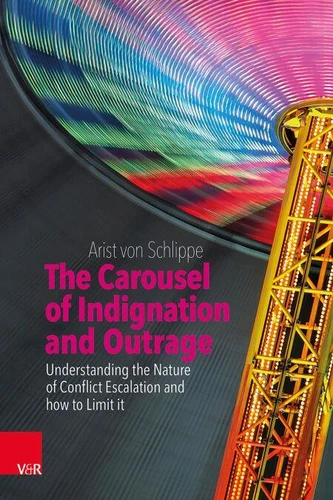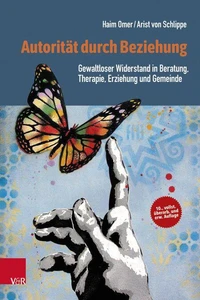The Carousel of Indignation and Outrage. Understanding the Nature of Conflict Escalation and how to Limit it
Par : , ,Formats :
Disponible dans votre compte client Decitre ou Furet du Nord dès validation de votre commande. Le format ePub est :
- Compatible avec une lecture sur My Vivlio (smartphone, tablette, ordinateur)
- Compatible avec une lecture sur liseuses Vivlio
- Pour les liseuses autres que Vivlio, vous devez utiliser le logiciel Adobe Digital Edition. Non compatible avec la lecture sur les liseuses Kindle, Remarkable et Sony
 , qui est-ce ?
, qui est-ce ?Notre partenaire de plateforme de lecture numérique où vous retrouverez l'ensemble de vos ebooks gratuitement
Pour en savoir plus sur nos ebooks, consultez notre aide en ligne ici
- Nombre de pages193
- FormatePub
- ISBN978-3-647-99303-4
- EAN9783647993034
- Date de parution15/07/2024
- Protection num.pas de protection
- Taille3 Mo
- Infos supplémentairesepub
- ÉditeurVandenhoeck & Ruprecht
Résumé
Conflicts have accompanied mankind since time immemorial, and for almost as long people have been trying to limit and deal with them - whether as those affected by them or as professionals with more or less success. For once a system of conflict has developed, once negative expectation structures and with them negative self-evident truths and inherent laws have developed, it becomes increasingly difficult for those involved to escape them: The complexity of our social world, in which it is not easy for communication to find its way, remains unseen.
A violated sense of justice, misunderstandings and unfortunate attempts to correct them alternate. One begins to attribute the causes of the conflict to the "person" ("It's you! It's your fault!") and to attribute negative motives to the conflict partner ("You're only doing this because ...!"), who in turn does the same - just like a carousel that slowly gets going. A number of well-studied but little-known psychological processes occur within us when we are in conflict.
Outrage at the other person grows, usually unfortunately on both sides. Slowly, the "carousel of outrage and indignation" begins to spin - faster and faster, until... The book places the various psychological mechanisms in the context of a systemic understanding of conflict and explains ways to slow down the carousel.
A violated sense of justice, misunderstandings and unfortunate attempts to correct them alternate. One begins to attribute the causes of the conflict to the "person" ("It's you! It's your fault!") and to attribute negative motives to the conflict partner ("You're only doing this because ...!"), who in turn does the same - just like a carousel that slowly gets going. A number of well-studied but little-known psychological processes occur within us when we are in conflict.
Outrage at the other person grows, usually unfortunately on both sides. Slowly, the "carousel of outrage and indignation" begins to spin - faster and faster, until... The book places the various psychological mechanisms in the context of a systemic understanding of conflict and explains ways to slow down the carousel.
Conflicts have accompanied mankind since time immemorial, and for almost as long people have been trying to limit and deal with them - whether as those affected by them or as professionals with more or less success. For once a system of conflict has developed, once negative expectation structures and with them negative self-evident truths and inherent laws have developed, it becomes increasingly difficult for those involved to escape them: The complexity of our social world, in which it is not easy for communication to find its way, remains unseen.
A violated sense of justice, misunderstandings and unfortunate attempts to correct them alternate. One begins to attribute the causes of the conflict to the "person" ("It's you! It's your fault!") and to attribute negative motives to the conflict partner ("You're only doing this because ...!"), who in turn does the same - just like a carousel that slowly gets going. A number of well-studied but little-known psychological processes occur within us when we are in conflict.
Outrage at the other person grows, usually unfortunately on both sides. Slowly, the "carousel of outrage and indignation" begins to spin - faster and faster, until... The book places the various psychological mechanisms in the context of a systemic understanding of conflict and explains ways to slow down the carousel.
A violated sense of justice, misunderstandings and unfortunate attempts to correct them alternate. One begins to attribute the causes of the conflict to the "person" ("It's you! It's your fault!") and to attribute negative motives to the conflict partner ("You're only doing this because ...!"), who in turn does the same - just like a carousel that slowly gets going. A number of well-studied but little-known psychological processes occur within us when we are in conflict.
Outrage at the other person grows, usually unfortunately on both sides. Slowly, the "carousel of outrage and indignation" begins to spin - faster and faster, until... The book places the various psychological mechanisms in the context of a systemic understanding of conflict and explains ways to slow down the carousel.

















